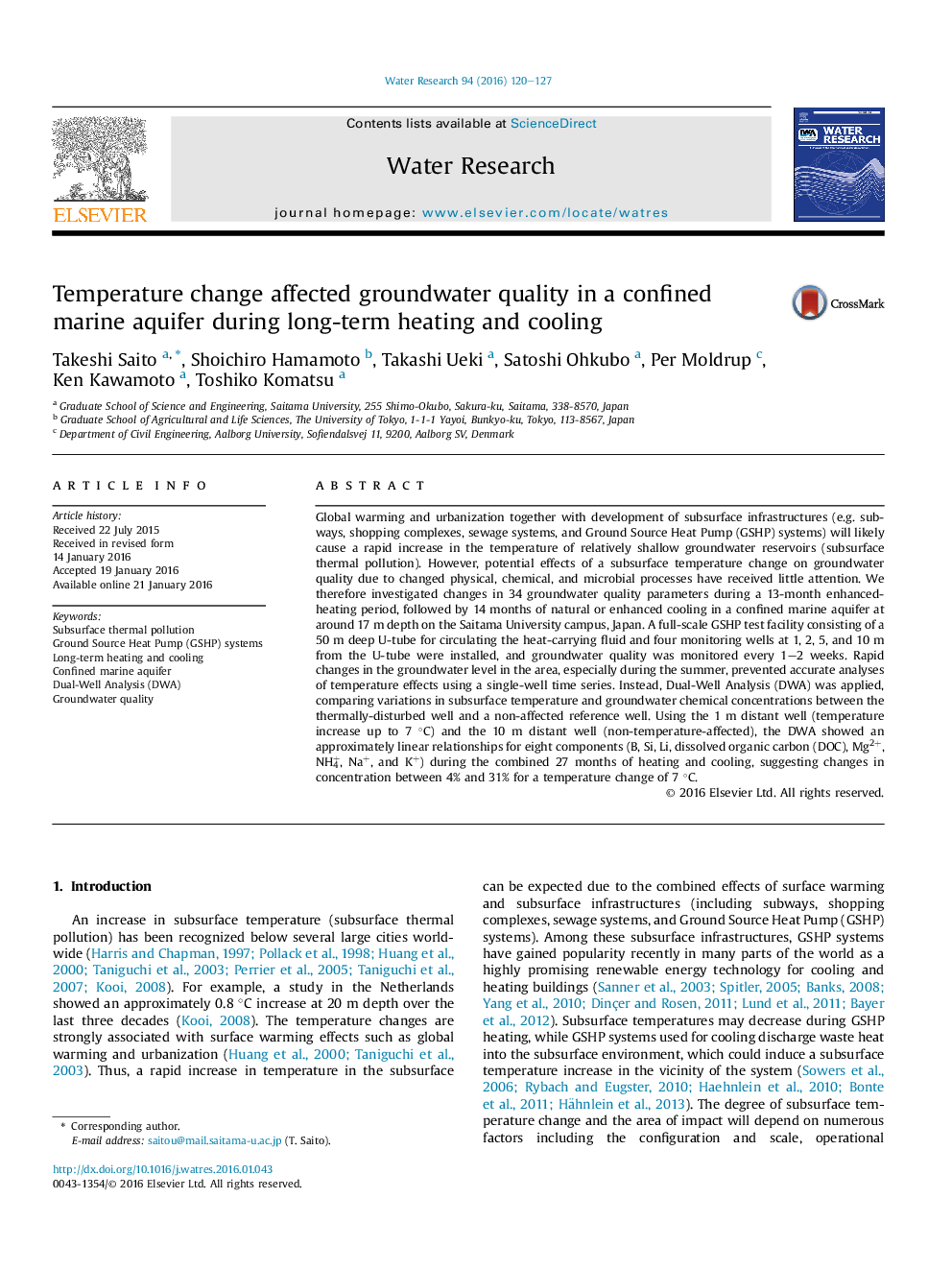| Article ID | Journal | Published Year | Pages | File Type |
|---|---|---|---|---|
| 6365205 | Water Research | 2016 | 8 Pages |
Abstract
Global warming and urbanization together with development of subsurface infrastructures (e.g. subways, shopping complexes, sewage systems, and Ground Source Heat Pump (GSHP) systems) will likely cause a rapid increase in the temperature of relatively shallow groundwater reservoirs (subsurface thermal pollution). However, potential effects of a subsurface temperature change on groundwater quality due to changed physical, chemical, and microbial processes have received little attention. We therefore investigated changes in 34 groundwater quality parameters during a 13-month enhanced-heating period, followed by 14 months of natural or enhanced cooling in a confined marine aquifer at around 17 m depth on the Saitama University campus, Japan. A full-scale GSHP test facility consisting of a 50 m deep U-tube for circulating the heat-carrying fluid and four monitoring wells at 1, 2, 5, and 10 m from the U-tube were installed, and groundwater quality was monitored every 1-2 weeks. Rapid changes in the groundwater level in the area, especially during the summer, prevented accurate analyses of temperature effects using a single-well time series. Instead, Dual-Well Analysis (DWA) was applied, comparing variations in subsurface temperature and groundwater chemical concentrations between the thermally-disturbed well and a non-affected reference well. Using the 1 m distant well (temperature increase up to 7 °C) and the 10 m distant well (non-temperature-affected), the DWA showed an approximately linear relationships for eight components (B, Si, Li, dissolved organic carbon (DOC), Mg2+, NH4+, Na+, and K+) during the combined 27 months of heating and cooling, suggesting changes in concentration between 4% and 31% for a temperature change of 7 °C.
Related Topics
Physical Sciences and Engineering
Earth and Planetary Sciences
Earth-Surface Processes
Authors
Takeshi Saito, Shoichiro Hamamoto, Takashi Ueki, Satoshi Ohkubo, Per Moldrup, Ken Kawamoto, Toshiko Komatsu,
